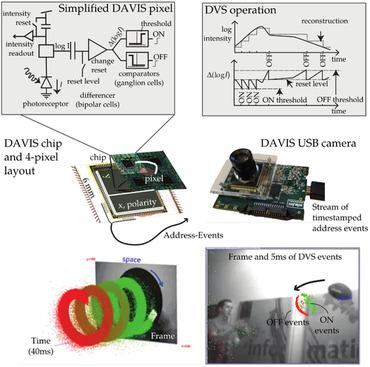Search Results for author: Hu Zhang
Found 18 papers, 5 papers with code
Integrating Semantic Scenario and Word Relations for Abstractive Sentence Summarization
no code implementations • EMNLP 2021 • Yong Guan, Shaoru Guo, Ru Li, XiaoLi Li, Hu Zhang
Recently graph-based methods have been adopted for Abstractive Text Summarization.
基于语料库的武侠与仙侠网络小说文体、词汇及主题对比分析(A Corpus-based Contrastive Analysis of Style, Vocabulary and Theme of Wuxia and Xianxia Internet Novels)
no code implementations • CCL 2020 • Sanle Zhang, Pengyuan Liu, Hu Zhang
网络文学在我国发展迅猛, 其数量和影响力呈现逐年上升的趋势, 但目前尚无公开的较大规模网络文学作品语料库, 鲜见基于语料库对网络文学具体类别作品的定量研究。本文初步建立了一个网络文学语料库, 其中包括武侠和仙侠网络小说, 使用文本计量、词频统计以及主题挖掘的方法对两类小说的文体风格、具体词汇使用和小说主题进行对比分析。通过比较, 我们发现两类小说的文体风格大致相同, 它们在词汇的使用和主题上既有共性又各具特色。从微观到宏观, 从表面到内容, 将定量统计和定性分析相结合, 多角度、多层次的对武侠和仙侠网络小说进行比较。
OpenSight: A Simple Open-Vocabulary Framework for LiDAR-Based Object Detection
no code implementations • 12 Dec 2023 • Hu Zhang, Jianhua Xu, Tao Tang, Haiyang Sun, Xin Yu, Zi Huang, Kaicheng Yu
OpenSight utilizes 2D-3D geometric priors for the initial discernment and localization of generic objects, followed by a more specific semantic interpretation of the detected objects.
Divide and Ensemble: Progressively Learning for the Unknown
no code implementations • 9 Oct 2023 • Hu Zhang, Xin Shen, Heming Du, Huiqiang Chen, Chen Liu, Hongwei Sheng, Qingzheng Xu, MD Wahiduzzaman Khan, Qingtao Yu, Tianqing Zhu, Scott Chapman, Zi Huang, Xin Yu
In the wheat nutrient deficiencies classification challenge, we present the DividE and EnseMble (DEEM) method for progressive test data predictions.
BAVS: Bootstrapping Audio-Visual Segmentation by Integrating Foundation Knowledge
no code implementations • 20 Aug 2023 • Chen Liu, Peike Li, Hu Zhang, Lincheng Li, Zi Huang, Dadong Wang, Xin Yu
In a nutshell, our BAVS is designed to eliminate the interference of background noise or off-screen sounds in segmentation by establishing the audio-visual correspondences in an explicit manner.
Audio-Visual Segmentation by Exploring Cross-Modal Mutual Semantics
no code implementations • 31 Jul 2023 • Chen Liu, Peike Li, Xingqun Qi, Hu Zhang, Lincheng Li, Dadong Wang, Xin Yu
However, we observed that prior arts are prone to segment a certain salient object in a video regardless of the audio information.
Automotive Object Detection via Learning Sparse Events by Spiking Neurons
no code implementations • 24 Jul 2023 • Hu Zhang, Yanchen Li, Luziwei Leng, Kaiwei Che, Qian Liu, Qinghai Guo, Jianxing Liao, Ran Cheng
Traditional object detection techniques that utilize Artificial Neural Networks (ANNs) face challenges due to the sparse and asynchronous nature of the events these sensors capture.
Accurate and Efficient Event-based Semantic Segmentation Using Adaptive Spiking Encoder-Decoder Network
no code implementations • 24 Apr 2023 • Rui Zhang, Luziwei Leng, Kaiwei Che, Hu Zhang, Jie Cheng, Qinghai Guo, Jiangxing Liao, Ran Cheng
Leveraging the low-power, event-driven computation and the inherent temporal dynamics, spiking neural networks (SNNs) are potentially ideal solutions for processing dynamic and asynchronous signals from event-based sensors.
STDEN: Towards Physics-Guided Neural Networks for Traffic Flow Prediction
1 code implementation • 1 Sep 2022 • Jiahao Ji, Jingyuan Wang, Zhe Jiang, Jiawei Jiang, Hu Zhang
High-performance traffic flow prediction model designing, a core technology of Intelligent Transportation System, is a long-standing but still challenging task for industrial and academic communities.
 Physics-informed machine learning
Physics-informed machine learning
 Spatio-Temporal Forecasting
+1
Spatio-Temporal Forecasting
+1
An Evolutionary Forest for Regression
1 code implementation • IEEE Transactions on Evolutionary Computation 2021 • Hengzhe Zhang, Aimin Zhou, Hu Zhang
Random forest (RF) is a type of ensemble-based machine learning method that has been applied to a variety of machine learning tasks in recent years.
A Knowledge-Guided Framework for Frame Identification
no code implementations • ACL 2021 • Xuefeng Su, Ru Li, XiaoLi Li, Jeff Z. Pan, Hu Zhang, Qinghua Chai, Xiaoqi Han
In this paper, we propose a Knowledge-Guided Frame Identification framework (KGFI) that integrates three types frame knowledge, including frame definitions, frame elements and frame-to-frame relations, to learn better frame representation, which guides the KGFI to jointly map target words and frames into the same embedding space and subsequently identify the best frame by calculating the dot-product similarity scores between the target word embedding and all of the frame embeddings.
EPSANet: An Efficient Pyramid Squeeze Attention Block on Convolutional Neural Network
3 code implementations • 30 May 2021 • Hu Zhang, Keke Zu, Jian Lu, Yuru Zou, Deyu Meng
Recently, it has been demonstrated that the performance of a deep convolutional neural network can be effectively improved by embedding an attention module into it.
Asynchronous Modeling: A Dual-phase Perspective for Long-Tailed Recognition
no code implementations • 1 Jan 2021 • Hu Zhang, Linchao Zhu, Yi Yang
Motivated by such phenomenon, we propose to disentangle the distinctive effects of data-rich and data-poor gradient and asynchronously train a model via a dual-phase learning process.
Evolutionary Reinforcement Learning via Cooperative Coevolutionary Negatively Correlated Search
no code implementations • 8 Sep 2020 • Hu Zhang, Peng Yang, Yanglong Yu, Mingjia Li, Ke Tang
Evolutionary algorithms (EAs) have been successfully applied to optimize the policies for Reinforcement Learning (RL) tasks due to their exploration ability.
Motion-Excited Sampler: Video Adversarial Attack with Sparked Prior
1 code implementation • ECCV 2020 • Hu Zhang, Linchao Zhu, Yi Zhu, Yi Yang
Most of previous work on adversarial attack mainly focus on image models, while the vulnerability of video models is less explored.
Query-efficient Meta Attack to Deep Neural Networks
1 code implementation • ICLR 2020 • Jiawei Du, Hu Zhang, Joey Tianyi Zhou, Yi Yang, Jiashi Feng
Black-box attack methods aim to infer suitable attack patterns to targeted DNN models by only using output feedback of the models and the corresponding input queries.
Sentence Compression via DC Programming Approach
no code implementations • 13 Feb 2019 • Yi-Shuai Niu, Xi-Wei Hu, Yu You, Faouzi Mohamed Benammour, Hu Zhang
Sentence compression is an important problem in natural language processing.
Learning from Non-Stationary Stream Data in Multiobjective Evolutionary Algorithm
no code implementations • 16 Jun 2016 • Jianyong Sun, Hu Zhang, Aimin Zhou, Qingfu Zhang
Evolutionary algorithms (EAs) have been well acknowledged as a promising paradigm for solving optimisation problems with multiple conflicting objectives in the sense that they are able to locate a set of diverse approximations of Pareto optimal solutions in a single run.











